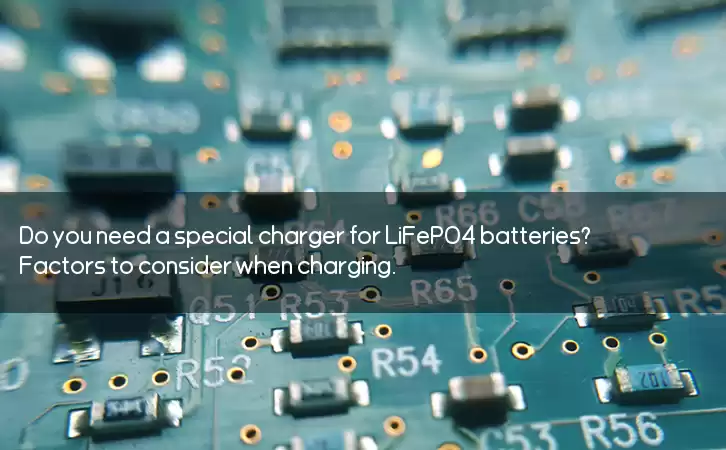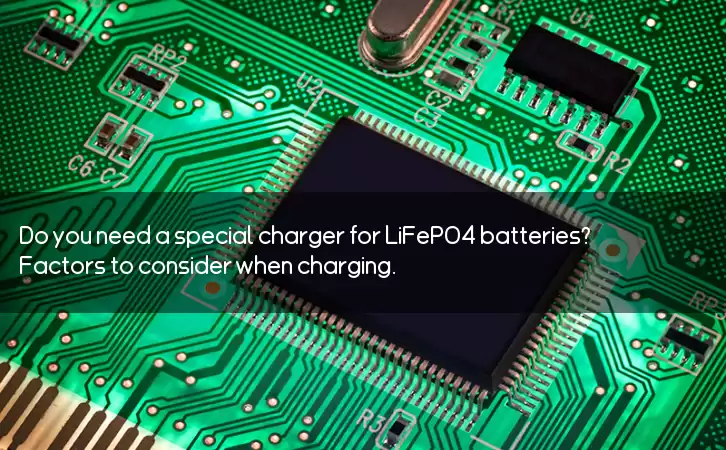Information Center
Do you need a special charger for LiFePO4 batteries? Factors to consider when charging.
Published:2023-06-15 20:35:27 Author:Green WCND Views:46LiFePO4 batteries, or Lithium Iron Phosphate batteries, have been gaining popularity in recent years due to their many benefits. They are highly efficient, have a longer lifespan, and are more environmentally friendly than traditional lead-acid batteries. However, when it comes to charging these batteries, many people wonder if they need a special charger. In this article, we will discuss whether or not LiFePO4 batteries require a special charger and what factors should be considered when charging these batteries.

To begin, it is important to understand the basic charging requirements of LiFePO4 batteries. These batteries require a constant voltage charge, typically between 3.2V and 3.6V per cell. This means that the charging voltage should not exceed this limit, as it can lead to overcharging and damage to the battery. Additionally, LiFePO4 batteries require a constant current charge until the battery is nearly full. At this point, the charger should gradually decrease the charging current to avoid overcharging.

With this in mind, let’s consider whether or not a special charger is necessary for LiFePO4 batteries. The answer depends on the specific battery and charger being used. While LiFePO4 batteries have specific charging requirements, many chargers on the market today are compatible with these batteries. However, it is important to research the charging specifications of both the battery and charger to ensure compatibility. Using a charger that is not designed for LiFePO4 batteries can result in damage to the battery or even personal injury.
When selecting a charger for LiFePO4 batteries, there are a few factors to consider. First, consider the charging voltage and current specifications of the battery. Make sure to choose a charger that is compatible with these specifications, as well as the number of cells in the battery. Additionally, consider the charging speed of the charger. While a higher charging speed may be desirable, it is important to ensure that the charger does not exceed the maximum charging rate of the battery.
Another factor to consider when charging LiFePO4 batteries is the temperature. These batteries can be sensitive to high temperatures, and charging at high temperatures can lead to thermal runaway and damage to the battery. Some chargers include temperature sensors or temperature-controlled charging to avoid this issue.
In summary, while LiFePO4 batteries have specific charging requirements, many chargers on the market today are designed to be compatible with these batteries. However, it is important to research the charging specifications of both the battery and charger to ensure compatibility and avoid damage or injury. Factors such as the charging voltage and current, charging speed, and temperature should be considered when selecting a charger for LiFePO4 batteries. By following these guidelines, you can ensure that your LiFePO4 battery is charged safely and efficiently.
Power Adapter Design and Customization Guide for Portable Electric KettlesI. Common Design Types for Portable Electric Kettle Power AdaptersPortable electric ke···
I. Common Design Types of Power Adapters External Independent Type (Most Common) Design: A standalone adapter (e.g., "black brick") connected to the p···
Handheld Vacuum Cleaner Power Adapter Selection GuideIntroductionHandheld vacuum cleaners have become a mainstream tool for household cleaning due to their port···
Drill Power Adapter Selection Guide.drill-container { font-family: Arial, sans-serif; line-height: 1.6; max-width: 800px; margin: 0 auto; padding: 20px; } .dril···





